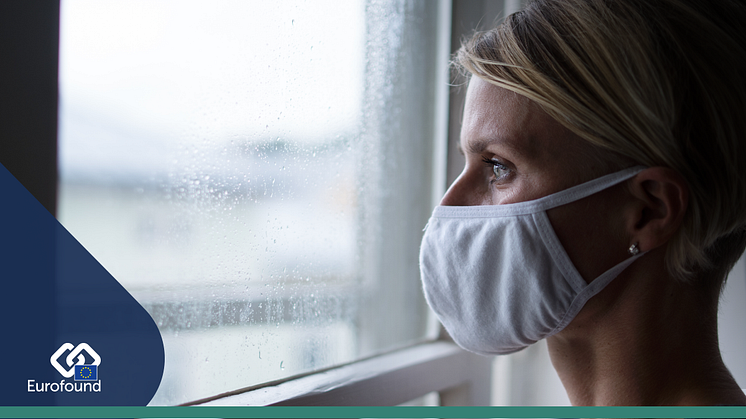
News -
Eurofound: Looking forward to post-pandemic Europe
In spring 2021 24% of workers were working exclusively from home in the EU, reaching as high as 48% in Ireland. In total, 36% of hours were worked from home in the EU at this point. As Europe moves to the final stages of its initial vaccination programme, workers are now returning to offices and other places of work, and citizens in general are reengaging into the community to enjoy family, sporting and cultural events, as well as access other important services. The workplaces and venues they return to will be dramatically changed from those left behind in spring 2020, with new challenges and, perhaps, new opportunities. Eurofound will be releasing important new research this autumn investigating these changes and what they mean for our new Europe.
COVID-19 has had a dramatic impact on the labour market throughout Europe, with the mass adoption of telework changing not just where but also how work was done. Telework shielded workers from exposure to the virus and allowed many to spend more time with family and loved ones; but it also brought long working hours and risks to health and well-being. As a result, the right to disconnect from work-related digital communications during free time became a live workplace and political issue. In early September Eurofound will release a report that charts the implementation of the right to disconnect at workplace level, the influence of collective agreements and legislation on the right to disconnect, and possible impacts on working hours and employee well-being in the future.
COVID-19 has had significant direct and indirect impacts on the health of people in Europe. In addition to the epidemiological implications of the virus itself, policy responses and other measures necessary to contain its spread have impacted both mental well-being and access to essential health services, with notable variations between EU Member States. In September Eurofound will release a new policy brief investigating whether the COVID-19 pandemic is a turning point for convergence in health and healthcare in the EU, with particular attention to young people and women.
The coming months will be crucial in the lives of people across Europe. On the one hand citizens can draw comfort and strength from Europe’s resilience in the face of one of the largest public health threats in a century and look forward with optimism to reconnecting with colleagues and friends at work and in the community; on the other, the menace of future variants looms large and the COVID-19 pandemic exposed numerous fissures in both the economy and broader society. In late September Eurofound will publish a report looking at the future of Europe, specifically the ongoing social factors shaping optimism and pessimism among citizens, particularly people’s perceptions of fairness and objective indicators of their social and economic situation and living standards.
Journalists and other interested stakeholders can sign up to receive these publications as soon as they are published via the links below, and further information on upcoming research, events and priorities can be accessed via Eurofound’s Communications calendar. Additional press information on Eurofound’s activities can be requested from Måns Mårtensson (Media and Promotions Manager, mma@eurofound.europa.eu) and James Higgins (Promotions Officer, jhi@eurofound.europa.eu).
Forthcoming reports:
Right to disconnect: Exploring company practices
The COVID-19 pandemic: A turning point for convergence in health and healthcare in the EU?
Towards the future of Europe: Social factors shaping optimism and pessimism among citizens
Further information and upcoming work:



